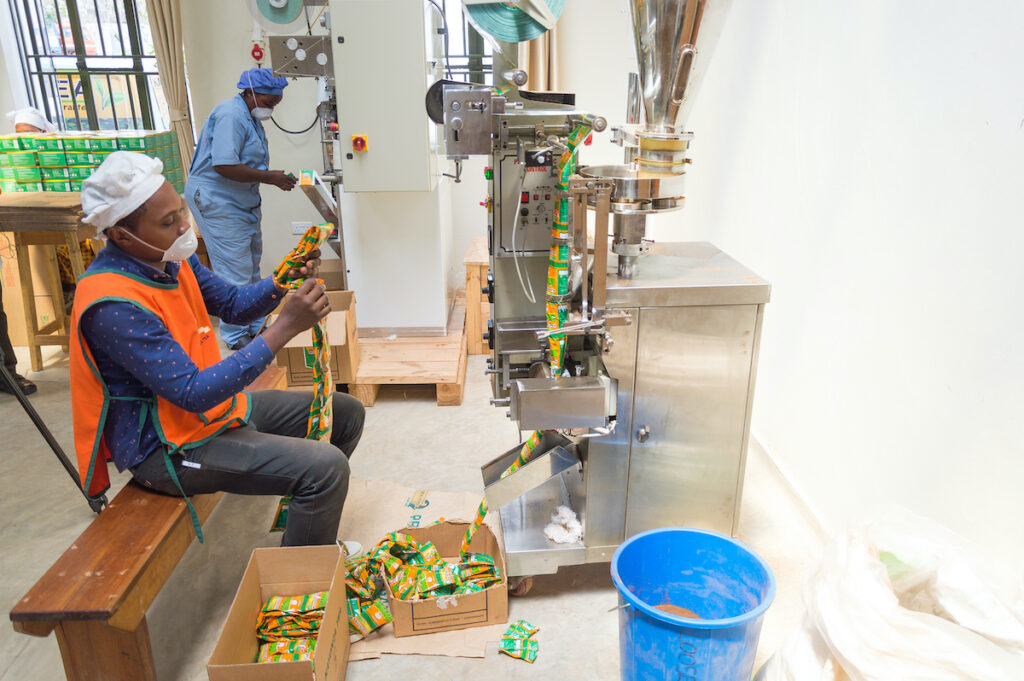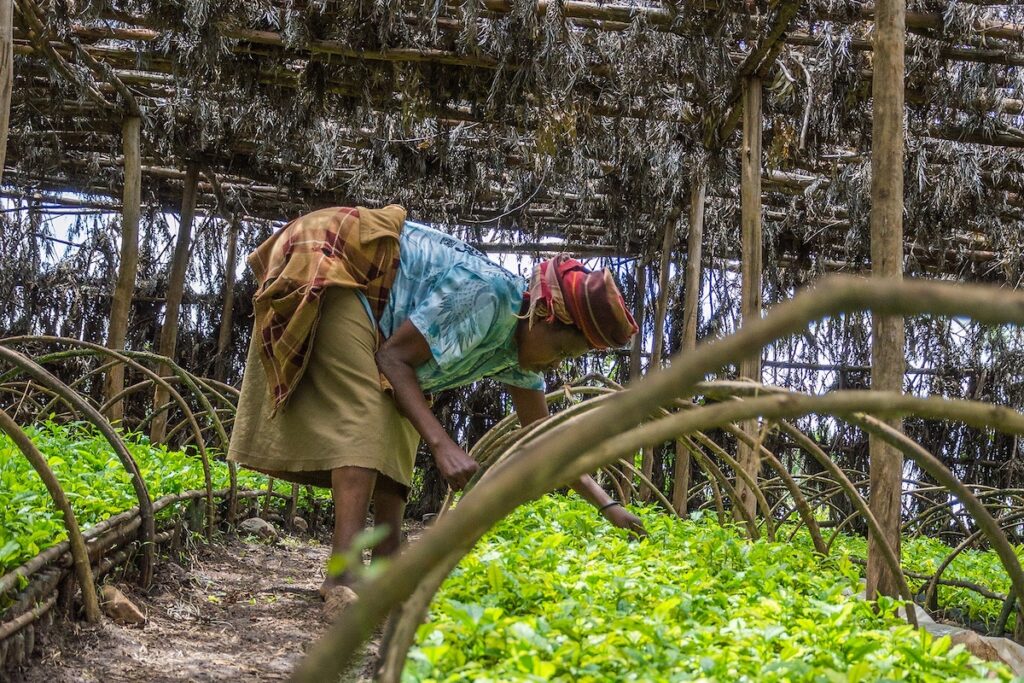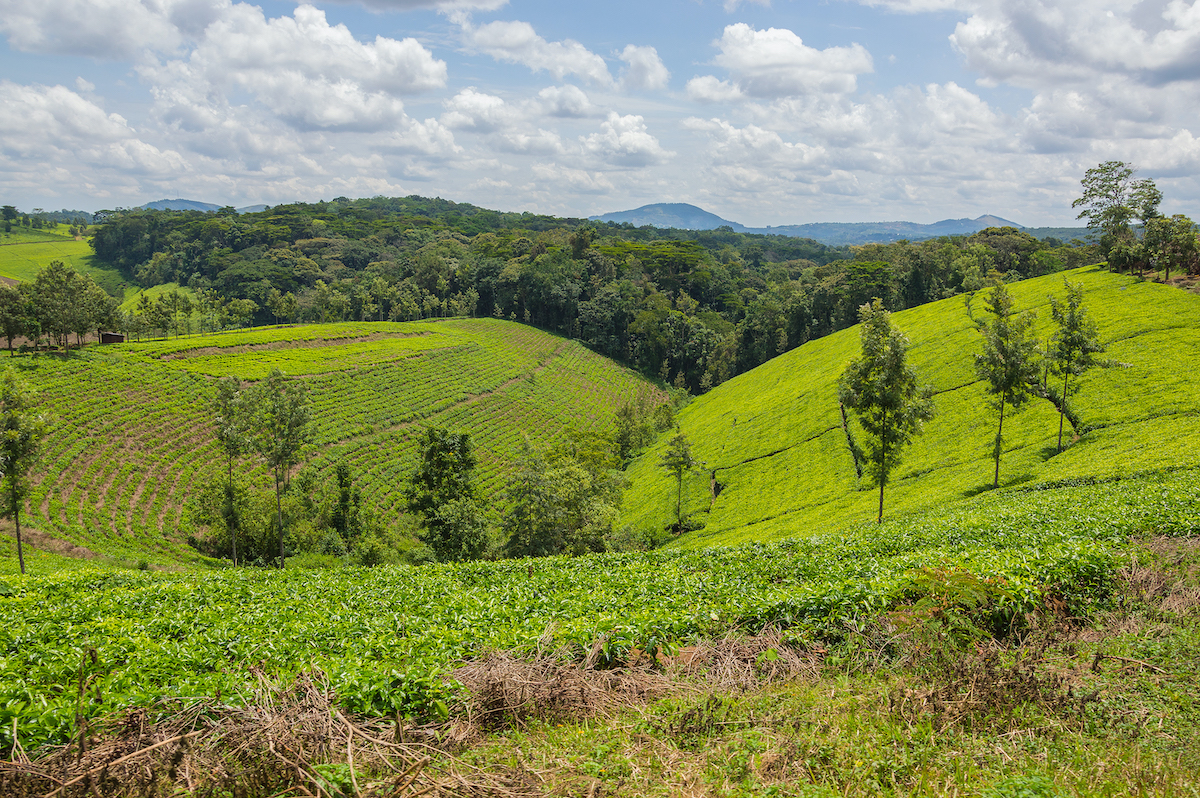Tea plantings thrive in Kenya’s fertile landscape.
In a significant move to boost incomes for smallholder tea farmers, the Kenyan government has committed about 1 billion Kenyan shillings (approximately 7 million euros) to encourage value addition in the Kenyan tea sector. This strategic move is envisaged to create jobs, increase earnings, and develop enterprises along the tea value chain. The initiative promises to transform the country’s tea farming sector by integrating it with modern, value-added processes.
Tea farming, introduced in Kenya in 1903, has flourished in the country’s fertile highlands. This makes Kenya one of the most well-known tea exporters globally. Tea exports are crucial to the Kenyan economy, contributing significantly to the GDP. In 2023, Kenya’s tea exports increased by 31 percent, a record high contributing to 180.57 billion Kenyan shillings (about 1.25 billion euros), compared to roughly 850 million euros the previous year.
Despite Kenya’s success, the tea sector faces challenges, including price fluctuations and high production costs that necessitate a shift towards more sustainable and profitable practices.

All tea, including green, black, white, matcha and pu-erh, is made from the Camellia sinensis plant. Increasing value in tea involves imbuing the product with added features or integrating more of the production process at origin. Value addition has the potential to increase smallholder farmers’ incomes by up to 40 percent when compared with non-value added conventional tea.
Practices can include packaging, branding, blending and obtaining quality certifications. Producing flavored teas or instant varieties represent other lucrative opportunities. Currently, only 5 percent of Kenya’s tea is value-added, but this is expected to rise to 50 percent by 2027 due to government efforts and multi-stakeholder collaboration.
The initiative taps into the growing global trend towards healthy products. There is an increasing demand for specialty teas like the native Kenyan purple tea, known for its health benefits and including less caffeine and high levels of antioxidants. Currently, high-grade premium loose-leaf teas, such as those produced through specialty methods, can fetch up to 8,000 Kenyan shillings (56 euros) per kg.
Kenyan farmers have traditionally relied on the conventional methods of tea production — plucking, withering, rolling, oxidation, and drying — which, while profitable, offers less income potential than value-added teas.

The government and various stakeholders are now enhancing farmers’ capabilities through training and support in advanced practices and market understanding. This education focuses on meeting market thresholds, understanding consumer preferences, and achieving necessary certifications.
Furthermore, leveraging modern technology, like the use of mobile apps, provides farmers with real-time information on market prices, weather conditions and sustainable farming practices. This helps them take informed decisions and improve their product quality.
The Kenyan tea sector stands at a pivotal moment. By embracing value addition and technological advancements, Kenyan tea farmers can significantly elevate their incomes, enhance product quality, and position themselves competitively in the global market.
The government’s substantial investment and ongoing support from stakeholders mark crucial steps toward realizing a sustainable and prosperous future for the Kenyan tea industry.

The writer, Rachel Wanyoike, is the Managing Director of Solidaridad East and Central Africa.

